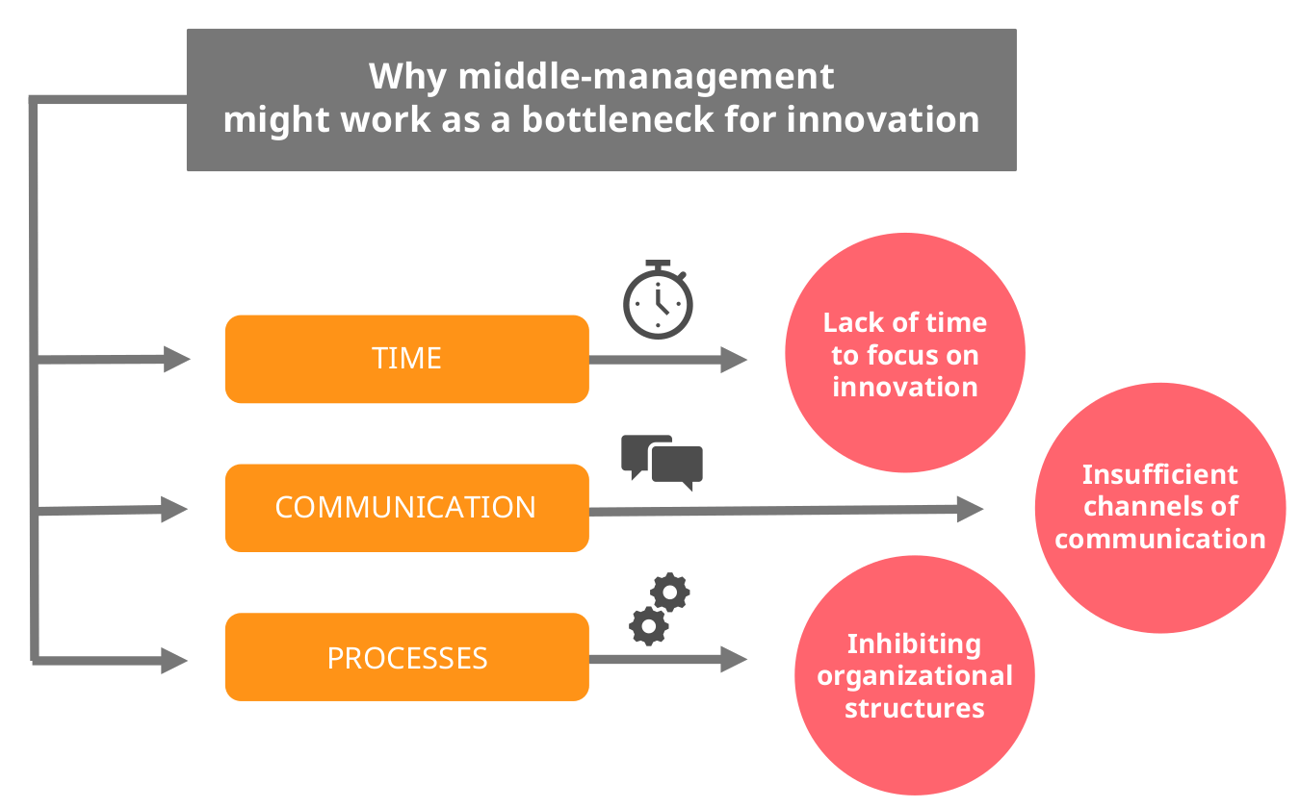The Crucial Role Of Middle Management In Employee Development And Company Growth

Table of Contents
Middle Management as Mentors and Coaches
Middle managers are often the first point of contact for employees seeking guidance and career advancement. They are on the front lines of employee development initiatives and their effectiveness significantly impacts team performance.
Providing Personalized Guidance and Support
Effective middle managers understand that a one-size-fits-all approach to employee development is ineffective. They provide personalized support tailored to individual needs and career aspirations. This includes:
- Offering regular feedback and performance reviews: Constructive criticism and regular check-ins ensure employees are aware of their progress and areas for improvement. Regular feedback is a cornerstone of effective employee development strategies.
- Identifying employee strengths and weaknesses, tailoring development plans accordingly: By accurately assessing individual skills and identifying skill gaps, middle managers can create targeted development plans. This may involve identifying employees for specific leadership development programs.
- Providing opportunities for skill enhancement through training, mentorship, and challenging assignments: Middle managers should actively seek out opportunities for their team members to grow, whether through formal training programs, mentorship from senior colleagues, or challenging projects that stretch their abilities. Investing in mentorship programs can foster strong relationships and accelerate professional growth.
- Acting as advocates for their team members' professional growth within the organization: Middle managers should champion their team's development within the broader organization, helping them to access opportunities and resources.
Fostering a Culture of Learning and Development
Middle managers are instrumental in creating a team environment that values continuous learning and professional growth. This proactive approach to learning and development has a positive impact on team cohesion and productivity.
- Encouraging employees to take on new challenges and step outside their comfort zones: Creating a psychologically safe environment allows employees to take risks and learn from their mistakes.
- Promoting knowledge sharing and collaboration within the team: Facilitating knowledge transfer through peer mentoring and team-based projects fosters a culture of collaboration and continuous learning.
- Celebrating successes and providing constructive feedback on failures: Creating a culture of recognition and learning from mistakes reinforces positive behaviors and helps employees grow.
- Creating opportunities for employees to learn from each other through peer mentoring and knowledge transfer initiatives: Establishing internal mentoring programs where experienced employees guide newer ones builds camaraderie and improves knowledge sharing.
Middle Management's Impact on Employee Engagement and Retention
Strong relationships between middle managers and their teams are crucial for fostering high engagement and reducing employee turnover. This ultimately translates into better company performance and reduces recruitment and training costs.
Building Strong Relationships and Trust
Effective middle managers prioritize building strong, trusting relationships with their team members. This involves:
- Open and honest communication: Transparency and open dialogue build trust and foster a sense of psychological safety.
- Active listening and empathy: Understanding employees' perspectives and concerns is critical for building rapport and resolving conflicts effectively.
- Recognition and appreciation for individual contributions: Acknowledging and rewarding employees' efforts boosts morale and increases engagement.
- Creating a supportive and inclusive work environment: A positive and inclusive work environment encourages collaboration and reduces stress, leading to higher engagement.
Reducing Employee Turnover
By investing in employee development and fostering a positive work environment, middle managers significantly reduce employee turnover. This leads to:
- Reduced recruitment costs: Retaining employees is far more cost-effective than constantly recruiting and training new ones.
- Increased productivity and efficiency: Experienced and engaged employees are more productive and efficient.
- Enhanced institutional knowledge and expertise: Losing experienced employees means losing valuable institutional knowledge.
- A more stable and experienced workforce: A stable workforce fosters better team dynamics and contributes to improved organizational performance.
Aligning Individual Goals with Company Objectives
Middle managers play a critical role in translating the company's overall strategic goals into actionable development plans for individual employees. This alignment ensures that employee development efforts directly contribute to organizational success.
Strategic Talent Development Planning
Effective middle managers are actively involved in strategic talent development planning. This includes:
- Identifying skill gaps and training needs aligned with future company needs: Proactive identification of skill gaps allows for timely interventions and training.
- Developing individualized career paths that support both employee aspirations and organizational objectives: Creating clear career paths motivates employees and ensures the organization has the talent it needs for the future.
- Regularly reviewing and updating employee development plans to reflect changing business priorities: Adapting to changing business conditions is key to staying competitive.
- Ensuring that training and development opportunities are relevant, timely, and impactful: Investing in relevant training maximizes the return on investment in employee development.
Performance Management and Succession Planning
Middle managers are crucial in performance management and succession planning. This involves:
- Providing regular feedback: Continuous feedback is vital for employee growth and improvement.
- Identifying high-potential employees: Identifying future leaders ensures a smooth transition of responsibilities.
- Contributing to succession planning initiatives: Succession planning ensures organizational stability and continuity.
Conclusion
Middle management's role in employee development and company growth is undeniably crucial. By acting as mentors, coaches, and strategic partners, middle managers directly influence employee engagement, retention, and the overall success of the organization. Investing in the training and development of middle managers is therefore a critical investment in the future of the company. Prioritize effective middle management to unlock the full potential of your workforce and achieve sustained company growth through focused employee development. Don't underestimate the power of strong middle management in driving your organization's success. Start investing in your middle managers today to see a significant return on investment in employee development and company growth.

Featured Posts
-
 Syracuse High School Lacrosse Hazing Scandal 11 Players Surrender
May 02, 2025
Syracuse High School Lacrosse Hazing Scandal 11 Players Surrender
May 02, 2025 -
 Switzerlands Strong Stance President Condemns Russias Actions In Ukraine
May 02, 2025
Switzerlands Strong Stance President Condemns Russias Actions In Ukraine
May 02, 2025 -
 Christina Aguileras Latest Photoshoot Sparks Debate Over Image Editing
May 02, 2025
Christina Aguileras Latest Photoshoot Sparks Debate Over Image Editing
May 02, 2025 -
 Voyage De 8000 Km L Histoire De Trois Jeunes Ornais Detendus
May 02, 2025
Voyage De 8000 Km L Histoire De Trois Jeunes Ornais Detendus
May 02, 2025 -
 Sulm Vdekjeprures Me Thike Ne Qender Tregtare Ne Republiken Ceke
May 02, 2025
Sulm Vdekjeprures Me Thike Ne Qender Tregtare Ne Republiken Ceke
May 02, 2025
Latest Posts
-
 Loyle Carner 3 Arena Gig Date Tickets And More
May 02, 2025
Loyle Carner 3 Arena Gig Date Tickets And More
May 02, 2025 -
 300 5
May 02, 2025
300 5
May 02, 2025 -
 6 9
May 02, 2025
6 9
May 02, 2025 -
 Loyle Carners 3 Arena Gig Dates Tickets And More
May 02, 2025
Loyle Carners 3 Arena Gig Dates Tickets And More
May 02, 2025 -
 Harry Potters Third Film Exploring The Directorial Shift
May 02, 2025
Harry Potters Third Film Exploring The Directorial Shift
May 02, 2025
